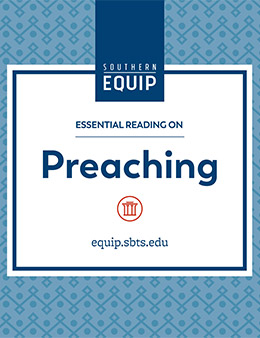Follow Spurgeon’s example in reading good books
One of the reasons Spurgeon was so rich in language and full in doctrinal substance is that he was always immersed in a great book.
What did Spurgeon read? He read all sorts of books. He read the Bible, the newspaper, Christian classics, history, biography, and fiction. He averaged reading six substantive books each week. Most of those books were weighty Puritan works. John Piper writes:
I think one of the reasons Spurgeon was so rich in language and full in doctrinal substance and strong in the spirit, in spite of his despondency and his physical oppression and his embattlements, is that he was always immersed in a great book—six a week. We cannot match that number. But we can always be walking with some great “see-er” of God. I walked with Owen most of the year on and off little by little and felt myself strengthened by a great grasp of God’s reality.
A primary reason that Spurgeon was such a great writer was due to his reading habits. W.Y. Fullerton in C. H. Spurgeon: A Biography recounts,
The whole Spurgeon Library, therefore, taking no count of tractates, consists of no less than 135 volumes in all, or, including the reprints, 176! If we add the albums and the pamphlets, we get an output of 200 books!
Fullerton says of Spurgeon’s personal library: “At the time of his death there were 12,000 volumes in Mr. Spurgeon’s library, in addition to those that he had sent to furnish the well-filled shelves of the library at the College.”
12,000 volumes provided the foundation of his library but, as Fullerton indicates, Spurgeon had even more books.
Spurgeon wrote, read, reviewed, distributed, and treasured books. Fullerton asserts, “To listen to his talk on books one would think that he had done nothing but read in the library all his life, and to mark his publications would fancy that he had done nothing but write.”
Yet we know that Spurgeon did much more than read and write. He was a pastor; he was an itinerant preacher, he led numerous institutions, and his services were constantly in demand.
We can distill down from Spurgeon’s reading habits several helps that we can employ.
1. Find good books. In Spurgeon’s library there were many used books that he found in the catalogues of second-hand-bookstores. Whether used or new, find good books. Especially find hardback books that will last through the years and can be passed on to your children.
2. Read good books. Books look beautiful lined across oak shelves. However, books are meant to be read. Spurgeon exhorted: “Give yourself unto reading. The man who never reads will never be read; he who never quotes will never be quoted. He who will not use the thoughts of other men’s brains, proves that he has no brains of his own.”
3. Read a variety of books. It is assumed that you will regularly feast on the Bible. Beyond that, read history, biography, hymns, classics, and good fiction. Spurgeon asserted:
We are quite persuaded that the very best way for you to be spending your leisure time, is to be either reading or praying. You may get much instruction from books which afterwards you may use as a true weapon in your Lord and Master’s service. Paul cries, ‘Bring the books’ — join in the cry.
4. Read as much as you can. Spurgeon was a uniquely gifted man. You are not Spurgeon, but it is likely you can read more books than you are presently reading. Start somewhere. Attempt two pages per day. In a month you will have read 60 pages and in three months you will finish your book. Start somewhere and then grow in your reading.
Provide your email address to receive this free ebook.
Oops! We could not locate your form.



